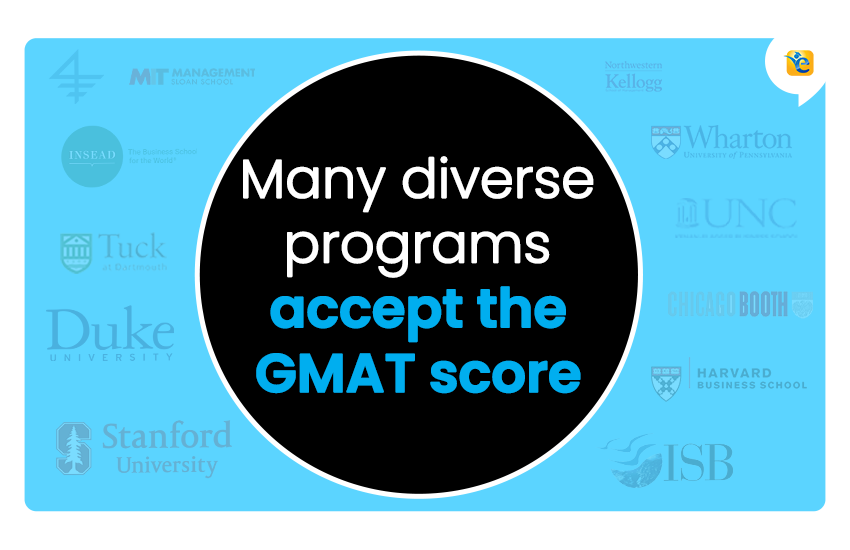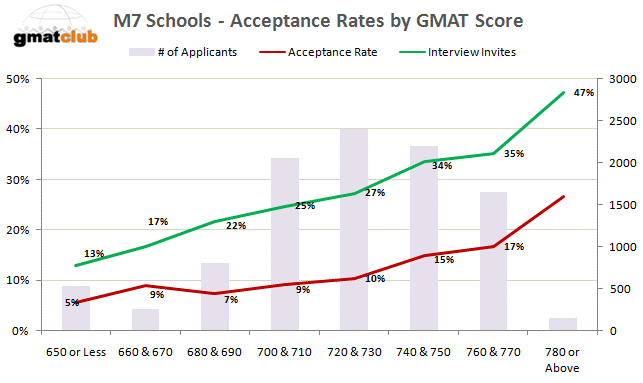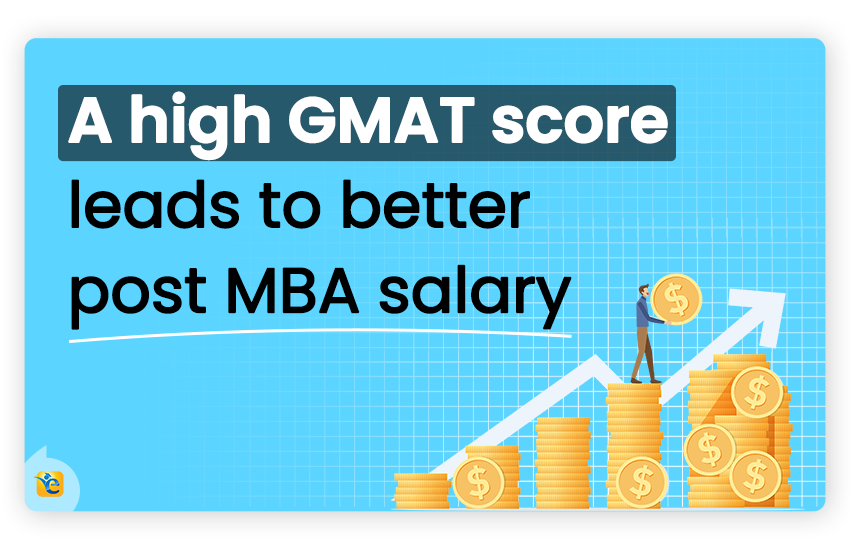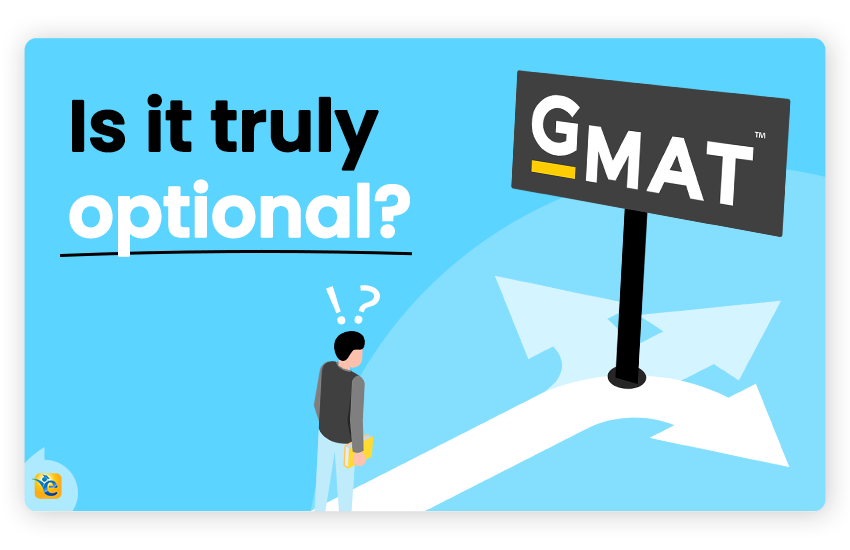For students aspiring to pursue a management degree, the question of whether to take the GMAT (Graduate Management Admission Test) often arises. With various entrance exams available, such as the CAT (Common Admission Test) or GRE (Graduate Record Examination), it can be confusing to determine which test is the most suitable. However, in recent times, the landscape has become even more complex with the growing trend of colleges making standardized test requirements optional.

This shifting landscape of college admissions has led to a perception that standardized tests, including the GMAT, are becoming optional. While it is true that some colleges have adopted a test-optional policy, it is crucial to understand the nuances of this decision. By exploring who the GMAT is meant for and understanding its significance in the admissions process, we can make an informed decision about whether taking the GMAT is the right choice for you.
In this article, we shall delve into the world of the GMAT, clarifying who the test is meant for, exploring the true optionality of the exam, and uncovering the potential benefits that taking the GMAT can bring to your educational and professional journey.

This article explains why you should take the GMAT and how a high score helps you before and after your MBA:
- Who is the GMAT meant for?
- Should I take the GMAT?
- 1. GMAT is the only exam specifically designed for management related programs that is widely accepted
- 2. 9/10 MBA new b-school enrolments are made using a GMAT score.
- 3. A high GMAT score is necessary to get into a top business school
- 4. A high GMAT score enhances your chances of getting a scholarship
- 5. A high GMAT score leads to a better post MBA salary
- Is the GMAT truly optional?
Did you know that a GMAT score of 730+ not only improves your chances of getting into a top B-school but also yields an incremental $500k in ROI? Take the first step towards your GMAT preparation journey by taking our free GMAT mock test. Identify your strengths and weaknesses, and get expert insights on how to improve your performance. With our track record of delivering the most 700+ scores reported on GMATClub, you can trust us to guide you toward success. Don’t wait; start your GMAT journey today!
Who is the GMAT meant for?
Before delving into the nuances of whether you should take the GMAT and if it is the right choice for you, it’s essential to grasp the purpose and target audience of this renowned exam. Understanding who the GMAT is meant for sets the foundation for making an informed decision about whether you should take this exam as a steppingstone in your management education journey. Whether you are a student with a clear goal, a working professional or someone exploring various test options, let’s shed light on who can benefit from taking the GMAT and how it can unlock doors to exciting opportunities.
The GMAT exam is a prerequisite for aspiring graduates in diverse management programs
As the GMAC rightly puts it, “The GMAT exam is your best first step toward a career with impact.” With over 7,700 business and management programs worldwide accepting GMAT scores, this standardized test has been the preferred choice of aspiring business leaders seeking admission to renowned business schools. The GMAT exam allows you to demonstrate the skills that hold paramount importance in the business school classroom and throughout your professional journey. As business programs, including MBA, MiM, and other management programs, boast rigorous curricula, admissions committees seek assurance that candidates not only possess the aptitude to attend but also the capacity to handle the demands of the coursework. A high GMAT score serves as a testament to your readiness for these programs. One of the key factors contributing to the popularity of the GMAT exam is its wide acceptance. It is not limited to MBA programs alone; it is also recognized by numerous master’s programs in management, such as MiM (Master in Management), MieM (Master in Entrepreneurship and Management), and business analytics programs, among others. Therefore, regardless of whether you have firmly decided on your specialization or are still exploring various options within the field of management, opting for the GMAT exam is a prudent choice.
Note- If you are an Indian student with aspirations of pursuing a master’s degree in a management field abroad, taking the GMAT exam is an absolute necessity. The competition among Indian students is incredibly fierce, and the number of seats available in top-notch business schools and master’s programs is limited. Consequently, having a high GMAT score becomes a prerequisite for securing admission to these esteemed institutions.
Anuj – GMAT Score 770 – Admit from Duke’s Fuqua School of Business
Despite a 60+ hours work week, Anuj scored a 770 in his second attempt. To get to such a high score as a working professional with a very hectic schedule is what makes this a special story. Note that in his first attempt he had scored a 710, and yet wasn’t being considered for any of his target business schools.
Guillermo – GMAT Score 710 – Admit from Wharton Business School
Guillermo’s story is that of dedication and relentless pursuit of a goal. Deciding on Wharton as his dream Business School after a visit, he pushed himself and scored a 710 in his first attempt and got an admit from the Wharton School. Note that he improved his quant score from a Q38 to Q50 in just three months.
Read about Guillermo’s journey here.
Furthermore, it is worth noting that an increasing number of Indian business schools, including prestigious institutions such as the Indian School of Business (ISB), have started accepting GMAT scores. This means that even if you plan to pursue your master’s degree within India, achieving a high GMAT score can prove advantageous and strengthen your application.

A 740+ GMAT score increases your chance of studying at a US business school. We can help you with quality online content to prepare. We are the most reviewed GMAT prep company on gmatclub with more than 2500 reviews. Why don’t you take a free trial and judge it for yourself? Write to us at acethegmat@e-gmat.com in case of any query.
The GMAT Exam: Suitable for both Undergraduates and Working Professionals
Whether you are a determined working professional with a clear career goal or an undergraduate student exploring various management-related programs, the GMAT exam presents itself as an excellent choice for you. As long as your aspirations are focused on pursuing a graduation in the field of management, the GMAT can be a valuable asset on your educational journey.
Balancing your GMAT studies while working however, requires a bit of dedication and hard work. Learn from Vikrant, a GMAT 770 scorer, how he managed to prepare for the GMAT despite having a hectic work schedule. You can watch his story here: https://e-gmat.com/blogs/vikrants-success-story-770-v42-q51-balancing-work-with-the-preparation/
Even if you are an undergraduate who hasn’t decided on the exact specialization yet, taking the GMAT is beneficial. A major advantage of taking the GMAT as an undergraduate is that the test scores are valid for five years. By taking the exam early, students can keep their options open and have a valid score in hand when they decide to pursue an MBA or other graduate programs. This flexibility allows them to focus on their careers immediately after completing their undergraduate studies, confident in the knowledge that they have a competitive GMAT score that remains valid for several years.
Moreover, studying for the GMAT while completing your undergraduate studies is typically easier.
Samiya, an e-GMAT student and a 780 scorer, who is currently studying in Wharton, vouches for it. Here is what she has to say- “Try to get done with the GMAT as early as possible. Preferably, while in school or immediately after. Since studying for the GMAT becomes that much easier as you’re already in the habit of putting in study hours. The positive morale boost of having a good GMAT score in hand should not be underestimated.”
You can read her story here- https://e-gmat.com/blogs/gmat-780-scorer-preparation-tips/

We hope this gives you a clear idea about who the GMAT is meant for. Now that you know the target audience for this exam, let us explore whether taking the GMAT is the right choice for you.
Should I take the GMAT?
With an increasing number of schools making the GMAT optional, the decision to take the exam depends on two main things: your target schools and your profile. As a general rule, the more competitive and aspirational your desired business school, the more compelling the reasons to take the GMAT and aim for a high score. Alternatively, if your overall profile is exceptional, the need for the GMAT may be less urgent, but it is still recommended. However, this is not all. It is important to consider all the potential benefits the GMAT offers in order to make an informed decision about whether you should take it. Let us look at these reasons one by one.
1. GMAT is the only exam specifically designed for management related programs that is widely accepted
The GMAT (Graduate Management Admission Test) is the gateway to over 7,700 business school and management-related programs, making it the sole widely accepted test that specifically assesses the skills necessary for success in these programs. Its significance is further emphasized with the introduction of the revamped version known as the GMAT focus edition, set to replace the older version. This new iteration places a strong emphasis on higher-order critical reasoning skills and data literacy, aligning with the evolving business landscape of the future.
To know more about the GMAT focus edition, click here- https://e-gmat.com/blogs/gmat-focus-edition/
In contrast, other standardized tests like the GRE (Graduate Record Examination) lack the specific focus on business programs, leaving the admissions committee without a clear indication of a candidate’s readiness to excel in a management curriculum. Additionally, the CAT (Common Admission Test), while effective in measuring students’ abilities, lacks broad acceptance, limiting its applicability to select Indian institutions and a handful of foreign colleges.
2. 9/10 MBA new b-school enrolments are made using a GMAT score.

As mentioned earlier, a high GMAT score serves as a testament for your readiness to cope up with the highly demanding MBA and management masters’ programs. It is a reliable predictor of your ability. Therefore, it is only natural that the admissions committee places importance on the candidates GMAT score while making the call on the seat. However, it is important to note that while a good GMAT Score definitely favours your application and improves your chances of getting admission into your dream B-School, it is not the sole criteria to ensure the same.
This article throws light on the various factors considered for admission decisions at B-schools and the role of the GMAT Score in MBA Applications
3. A high GMAT score is necessary to get into a top business school
The GMAT exam score has a strong correlation with the admission decisions of business schools. It is a significant component of your application that provides an objective measure to compare you against other applicants.
This is true especially for the top business schools, including the M7 business schools. The same can be observed through the following chart, which clearly demonstrates that higher GMAT scores are associated with higher acceptance rates:

Moreover, it is important to note that none of the top 10 business schools in the US have an average GMAT score below 720. This underscores the significance of not only taking the GMAT but also achieving a score of 720 or higher to enhance your chances of admission to these prestigious institutions. The trend of higher GMAT scores as a requirement for top business schools has been consistently on the rise. To provide further insight, here are the average GMAT scores over the years at the top 10 business schools in the US:
| MBA program | 2022 GMAT | 2021 GMAT | 2018 GMAT | 2014 GMAT |
| The Wharton School | 733 | 733 | 732 | 728 |
| Harvard Business School | 730 | 730 | 729 | 726 |
| Stanford Graduate School of Business | 737 | 738 | 732 | 732 |
| Booth School of Business | 729 | 732 | 731 | 724 |
| Kellogg School of Management | 729 | 729 | 732 | 713 |
| MIT Sloan School of Management | 730 | 730 | 728 | 713 |
| Dartmouth Tuck | 726 | 724 | 722 | 716 |
| Columbia Business School | 729 | 729 | 732 | 716 |
| UC Berkeley (Haas) | 729 | 729 | 726 | 717 |
| Yale School of Management | 725 | 726 | 724 | 719 |
Numerous experiences of e-GMAT students also indicate that a high GMAT score plays a vital role in securing admission to a top B-school. Consider the story of Nishant for instance, who was rejected by many B-schools with a GMAT 690. However, he was able to get an a full fellowship from Ohio Fisher and and admit from Columbia with a score of GMAT 740.
You can watch his story here: https://www.youtube.com/watch?v=lXeg0WraV7s&ab_channel=e-GMAT

Prawee too applied to many b-school with a score of GMAT 680, but only got calls from them after updating her new score of GMAT 740. You can watch her story here
4. A high GMAT score enhances your chances of getting a scholarship
Research suggests that achieving a GMAT score of 730 or higher compared to a score of 700 can yield an incremental return on investment (ROI) exceeding $500,000. This highlights the tremendous value of a high GMAT score as one of the most valuable investments a business school applicant can make. Furthermore, business schools utilize GMAT scores as a criterion for determining scholarship awards, making a strong GMAT performance even more crucial. A higher GMAT score can significantly enhance the likelihood of receiving larger scholarship awards, including full-tuition scholarships. Recognizing the importance of the GMAT exam, prospective business school students should strive to achieve a high score to maximize their chances of securing scholarships and financial support.
You can read all about the importance of GMAT in securing scholarships in this article: https://e-gmat.com/blogs/importance-of-gmat-for-securing-scholarships/
5. A high GMAT score leads to a better post MBA salary
If you believed that the role of the GMAT exam is solely to secure admission into an MBA program, it is time to reconsider. The significance of an outstanding GMAT score extends beyond the application process and continues to impact one’s post-MBA journey.
A high GMAT score greatly increases the chances of admission to top business schools, which, in turn, enhances the probability of securing desirable job opportunities after obtaining the coveted MBA degree.

On the GMATClub forum, a Carnegie Mellon Tepper graduate shares their experience during the recruitment process, emphasizing the importance of the GMAT exam. A prestigious consulting firm explicitly highlighted the candidate’s GMAT score as a contributing factor for their interest in the applicant’s candidacy.
Another compelling reason to strive for an excellent GMAT score is the requirement set by many companies, particularly in finance and consulting sectors, where high scores are sought after, with some firms even specifying a minimum score of 740.
The impact of the GMAT score on post-MBA salary and job prospects is further explored in this article that delves into the correlation between GMAT scores and post-MBA salaries.
Is the GMAT truly optional?
We hope that the information provided above has helped you understand the significance of the GMAT in the management application process. 90% of top 25 business programs require a GMAT score, so if you are planning to study at a top university such as Harvard, Stanford or even Indian business schools like ISB or Masters Union, skipping the GMAT Is a big no no.
It’s also important to note that if you come from a highly competitive applicant pool or have average grades, the GMAT can be an opportunity for you to stand out from the crowd and showcase your capabilities.
A high GMAT score can serve as a significant counterbalance, especially if you have a lower GPA, as it demonstrates to the admissions committee your academic abilities and readiness for the program.
The significance of the GMAT as a distinguishing factor in today’s fiercely competitive application process has heightened with the introduction of the new GMAT exam, known as the GMAT Focus Edition. This updated version is specifically tailored to evaluate the crucial skills required in the business world, thus rendering it highly pertinent. Consequently, admissions committees recognize the increased value of the GMAT. Bruce DelMonico, the assistant dean of admissions at Yale, affirms this positive development, stating, “In terms of the relevance and usefulness of the test, this is definitely a positive step that will be beneficial both to business schools and to candidates.”

That being said, some schools do offer GMAT waivers, but it’s important to note that these waivers are not universally applicable and are granted on an individual basis. For instance, to secure a GMAT waiver at Cornell, you’d need to communicate to the admissions committee your valid reason for opting out of the GMAT, along with compelling evidence demonstrating your potential to thrive in their demanding MBA program. In their January 2023 application cycle, they offered GMAT waivers specifically to applicants who had been laid off by a US tech company.
In a similar vein, Tuck provides a GMAT waiver for select candidates with a minimum of two years of post-graduate work experience who have been laid off.
Consequently, the GMAT isn’t really optional unless you possess significant work experience and credentials in courses like the CFA, which vouch for your ability to handle the challenging coursework. We highly recommend you review the eligibility criteria at your target business school prior to applying for a GMAT waiver.
Conclusion:
In conclusion, the decision to take the GMAT exam depends heavily on your individual academic and career goals, as well as the specific requirements of the institutions to which you’re applying. The GMAT is a widely accepted and respected standardized test specifically designed for management-related programs, and high scores on this test can play a significant role in both admissions and scholarship decisions at many prestigious institutions.
While some colleges and universities are moving towards a test-optional admissions policy, the GMAT remains a critical factor in the admissions process, particularly for competitive and top-tier business schools. A high GMAT score serves as a testament to your academic readiness and potential success in demanding management programs, making it a powerful asset in your application.
However, if you have an exceptional profile, and your target schools offer the option, applying for a GMAT waiver might be an alternative. Remember, though, if you come from a competitive applicant pool, or have average or lower grades, taking the GMAT could help you stand out and demonstrate your academic abilities.
We hope this article gave you valuable insights into why taking the GMAT is essential for your MBA journey. With the potential to secure admission to top business schools, scholarships, and better job opportunities with higher salaries, the GMAT is a must-have for anyone serious about their career in business.
So what are you waiting for? Start your GMAT preparation journey today by taking our free GMAT mock test and our free trial. Identify your strengths and weaknesses, and get expert insights on how to improve your performance.
In case of any questions, feel free to reach out to us at acethegmat@e-gmat.com














